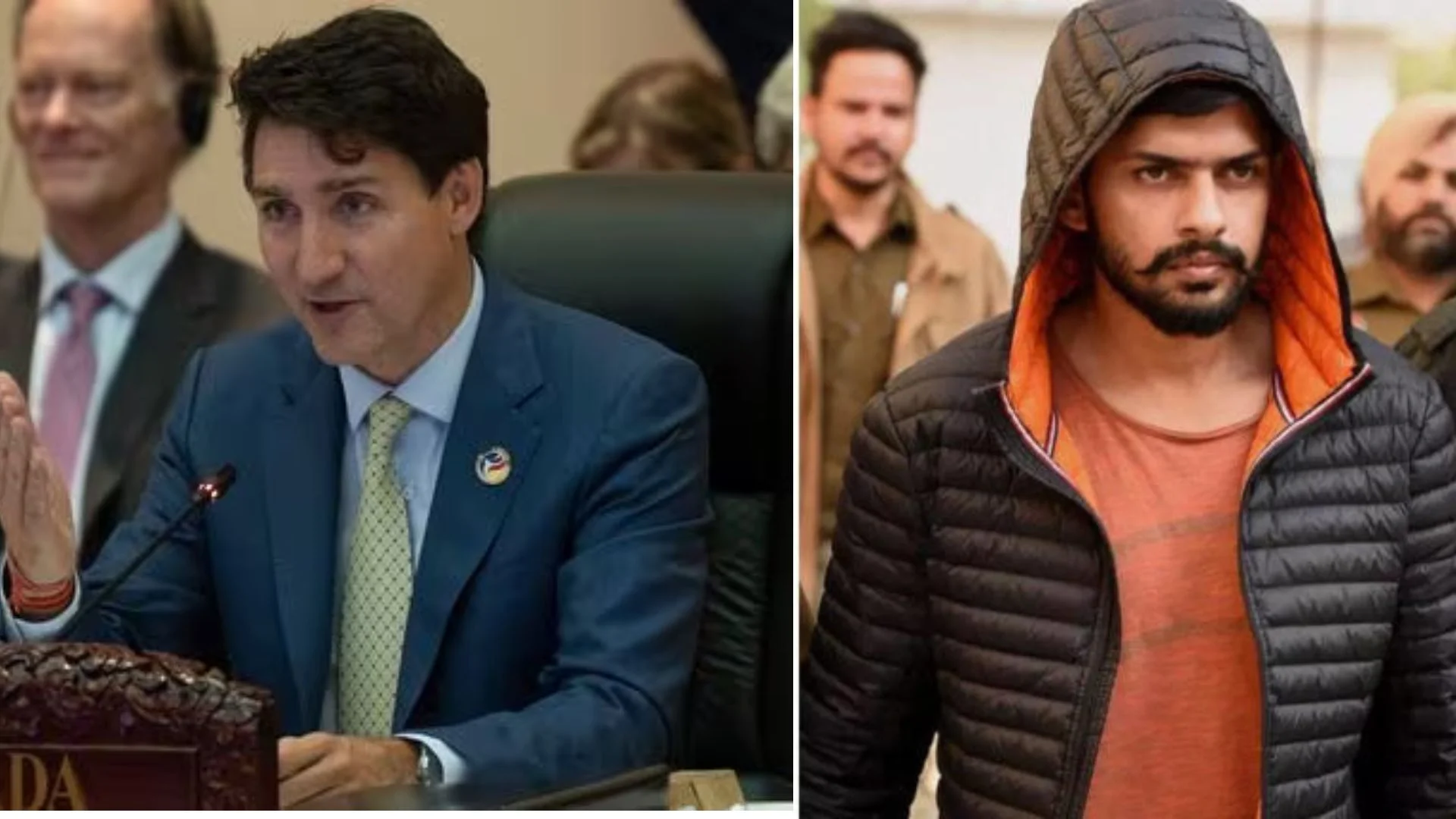Tensions between Canada and India have escalated as Canada leveled fresh allegations against New Delhi, accusing the Indian government of direct involvement in “serious criminal activity” on Canadian soil. The accusations, once again, were not supported by publicly available evidence, but Canadian authorities claim that Indian agents, in collaboration with the Lawrence Bishnoi gang, are targeting pro-Khalistan elements within Canada.
The Royal Canadian Mounted Police (RCMP) made these claims during a press conference late Monday, tying their ongoing investigation into the murder of Hardeep Singh Nijjar, a known Khalistani figure who was shot dead in Canada last year, to alleged Indian government involvement. Nijjar’s death had earlier sparked diplomatic tensions between the two nations, with India denying involvement and accusing Canada of harboring separatist terrorists.
The latest accusations also coincide with news from India, where Lawrence Bishnoi, a notorious gangster, is being investigated for his alleged role in the murder of NCP leader Baba Siddique in Mumbai.
RCMP Alleges Indian Agents Linked to Homicides in Canada
During the press conference, the RCMP stated that their investigation into Nijjar’s murder, as well as other criminal activities in Canada, has uncovered links between Indian government agents and organized crime. According to Assistant Commissioner Brigitte Gauvin, these agents have been working with the Bishnoi gang, a criminal syndicate that operates in India and has connections in Canada, to target pro-Khalistan elements in the South Asian community.
“What we have seen from an RCMP perspective is that organized crime elements, particularly the Bishnoi Group, are working with Indian agents,” Gauvin said. She further noted that some Canadian businesses and individuals had been coerced into cooperating with these agents, who were allegedly gathering information to assist in targeting specific members of the community.
Despite these allegations, Canada has yet to provide any concrete evidence publicly to back its claims, a point repeatedly emphasized by Indian officials.
Trudeau Repeats Accusations, Without Evidence
Following the RCMP’s revelations, Canadian Prime Minister Justin Trudeau addressed the media, reiterating his accusations against India. Trudeau claimed that his government had made multiple attempts to cooperate with New Delhi on the Nijjar investigation, but said the Indian government had refused to engage constructively.
However, India has consistently dismissed Canada’s accusations, insisting that Ottawa has failed to present any credible evidence. The Ministry of External Affairs (MEA) in India issued a strong rebuttal on Monday, accusing the Canadian government of making baseless allegations to appease domestic political interests. The MEA’s statement specifically targeted Trudeau, accusing him of engaging in “vote-bank politics” and failing to address the presence of separatist elements in Canada.
India has also raised concerns about Canada becoming a safe haven for organized crime figures, especially those with connections to Punjab. In recent months, Indian authorities have repeatedly urged Canada to take action against criminals operating from Canadian soil, pointing to high-profile cases like the killing of Indian singer Sidhu Moose Wala, for which the Bishnoi gang claimed responsibility.
Ongoing Diplomatic Standoff as Relations Deteriorate
The diplomatic row between the two nations has continued to intensify. On Monday evening, India recalled its top envoy from Canada and expelled six Canadian diplomats from New Delhi. This move followed earlier steps taken by Ottawa to designate the Indian High Commissioner Sanjay Verma and other Indian diplomats as “persons of interest” in the Nijjar murder investigation.
The involvement of the Lawrence Bishnoi gang in Canada’s accusations is a notable development. Bishnoi, who is currently incarcerated in Gujarat, India, has been linked to various high-profile murders, including that of Sidhu Moose Wala. Canada’s decision to implicate Bishnoi’s gang in its investigation into Nijjar’s murder may be seen as an attempt to lend credibility to its claims, although Indian authorities are questioning the timing, given that the gang has also claimed responsibility for the recent murder of Maharashtra politician Baba Siddique.
As the two countries continue to exchange sharp words and diplomatic measures, the crisis shows no sign of de-escalating. The absence of shared evidence, coupled with longstanding tensions over Canada’s handling of Khalistan-related activities, suggests that the standoff may persist for some time, with significant consequences for bilateral relations.




















